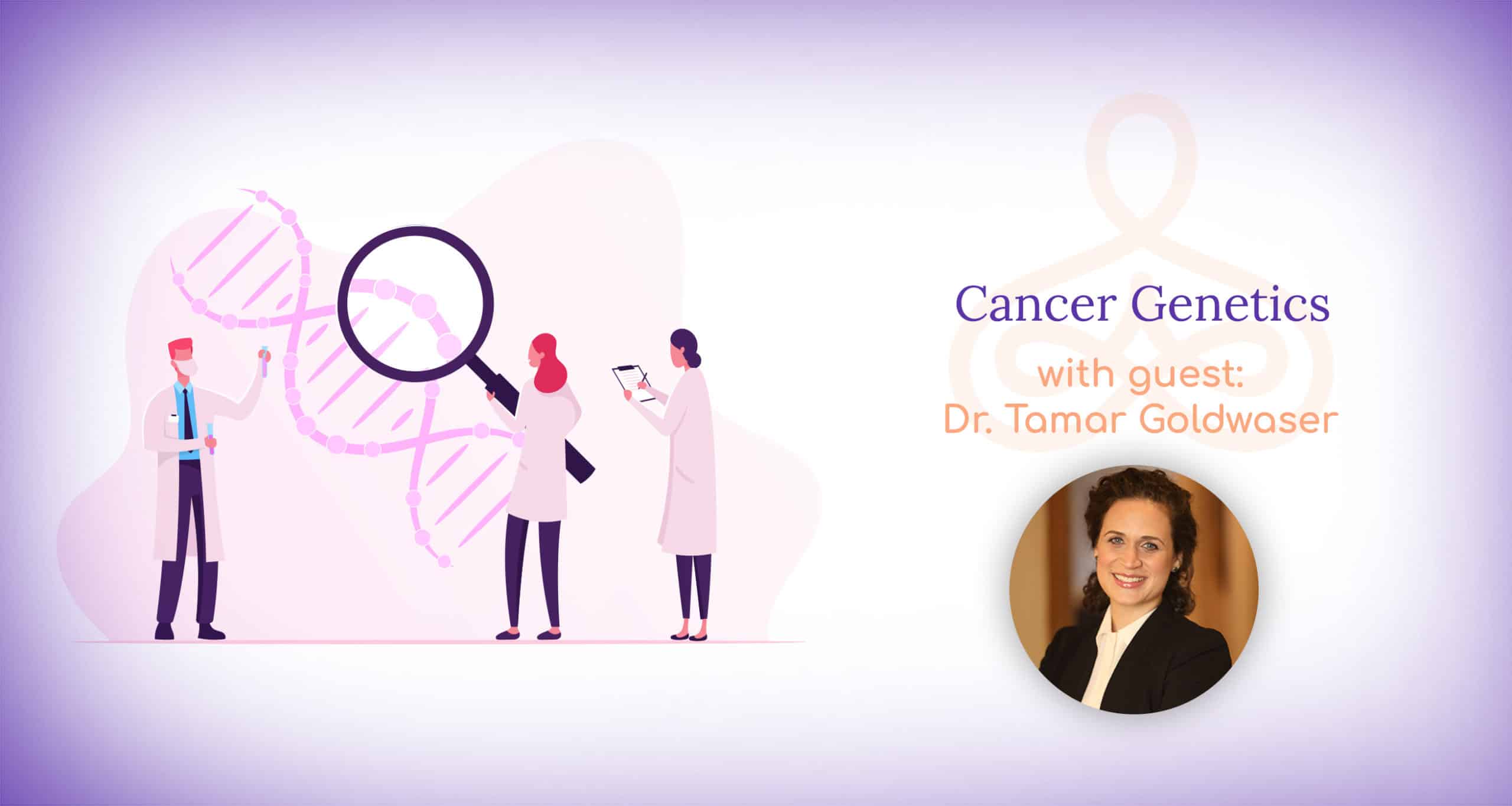Genetic cancer screening is a complex topic, which is why doctors like Dr. Tamar Goldwaser work to help patients understand their risk and options. On an episode of Healthful Woman, Dr. Goldwaser answered some common questions about genetic cancer screening. Listen to that episode on HealthfulWoman.com or continue reading to learn more.
When Patients Should Choose Genetic Cancer Screening
Typically, patients choose or are advised to pursue genetic cancer screening because they have been diagnosed with cancer or have a family history of cancer. Dr. Goldwaser explains that “when you see multiple generations being affected, that’s something that is worrisome.” This includes families with the same type of cancer affecting multiple people, an individual who has more than 1 cancer diagnosis, rare tumor types, male breast cancer, or other generational “red flags” that a doctor or genetic counselor may take note of.
In addition to this family history, some patients may choose screening to help guide their reproductive choices. As an example, Dr. Goldwaser says that “even if you’re not at risk to develop cancer in your 20s… knowing that you’re at a higher risk to develop cancer later on in your life… could actually influence certain reproductive choices that you make when you’re much younger.”
What Does it Mean to Have a Genetic Predisposition for Cancer?
Dr. Goldwaser explains genetic predispositions for cancer or “cancer genes” through this metaphor: “It’s like if you have a big castle with a lot of doors, and there’s supposed to be a bodyguard at every door. And if one bodyguard is asleep, that means you’re… more likely to get an intruder.”
Within human genes, there is a subset of “tumor suppressor” genes which correct, arrest or destroy cells that could become cancer. In some families, a pathogenic variant (mutation) in one of the tumor suppressor genes is passed on from generation to generation. People who inherit a nonfunctional tumor-suppressor gene are more likely to develop cancer.
In genetic cancer testing, a blood or saliva sample is collected and sent to a lab to “look at these genes in question, these genes that are known to protect us from cancer,” Dr. Goldwaser explains.
Should Everyone Have Genetic Cancer Testing?
While genetic testing can be a helpful way to be proactive about a patient’s health, there are some important considerations to address prior to electing cancer genetic testing. One consideration is the cost of testing, which is more likely to be covered by medical insurance if you are deemed to be at high risk or meet certain testing criteria. . In addition, cancer genetic testing is usually a once-in-a lifetime test and you want to be sure that you are ready to learn about your potential future risks. The test can be anxiety-provoking while waiting for results and once results are given. An abnormal result can be difficult to face if you are not prepared.
Schedule an Appointment
To learn more about genetic cancer screening, schedule an appointment with a Gynecologist at Carnegie Women’s Health. We can review your personal and family history of cancer, talk you through the various aspects of testing and see if it is the right choice for you.Call (315) 628-7063 or contact us online.

